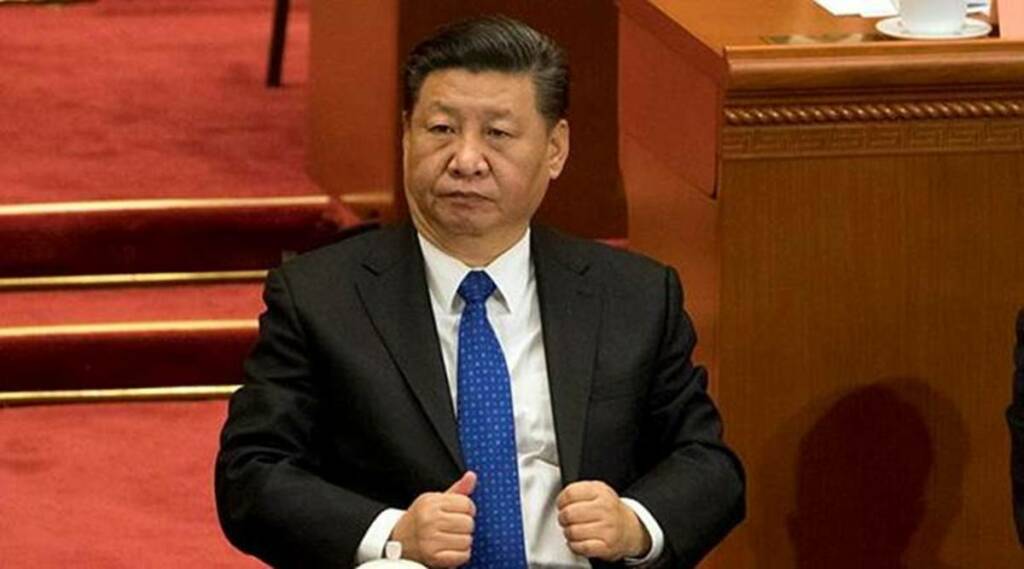Chinese President Xi Jinping is running a reign of terror. Under Xi’s command, the Chinese People’s Liberation Army (PLA) is bullying South Asian, Southeast Asian and East Asian nations. Within China, Xi’s regime is running concentration camps inside Xinjiang. All ethnic or religious minorities in China- Falun Gong practitioners, Mongolians, Uyghur Muslims and Tibetan Buddhists are facing genocide at the hands of the Chinese administration which processes Han Chinese supremacy.
Moreover, the Chinese Communist Party (CCP) cracks down on anyone who tries to express opposition against Beijing’s authoritarian policies. As such, Xi Jinping is to the twenty-first century world what Adolf Hitler was to the twentieth century world. Xi’s reign of terror must be stopped, for the sake of international peace and security. But who will achieve this goal? And more importantly, how will this goal be achieved?
Roger Garside, a former UK diplomat who twice served in the British Embassy in Beijing, believes that a regime change in China is imperative. So, if we go by his opinions, the end of Xi-led Chinese Communist Party (CCP) reign would be triggered by a regime change, and not an external war as many tend to think.
Except few experts like Roger Garside, the Western world has almost always misunderstood how China works. The West believes that only their citizens have a sense of entitlement regarding human rights. Western analysts tend to believe that since mainland China never enjoyed human rights, so an average Chinese has no fair expectation of political liberalisation.
But in reality, the Chinese billionaires and the big working middle class in the Communist nation have gained pragmatic experience of how political freedoms and human rights work. China started opening up in the 1980s, and over the past three-four decades, the people of China did have enough interaction with the West.
As such, the rich Chinese businessmen and economically prosperous middle class have elevated their standards of living. But they still envy political freedoms and individual liberties that have been brutally snapped by the CCP. Xi and his henchmen have monopolised political power in Beijing and this is what causes considerable unrest in China.
Garside explained this sentiment. He wrote in The Globe and Mail, “China’s dynamic private sector and big middle class, which is property-owning, educated, networked and enterprising, are denied all political rights. A Chinese entrepreneur may drive a Maserati and send his son to Harvard, but he is a political slave.”
The former UK diplomat added, “The country’s economic success is due not to socialism but to the energy and enterprise of the Chinese people – and the people have no right to elect or dismiss their rulers. Such a polity breeds distrust and resentment, and is a source of weakness.”
The sentiment of distrust and resentment is what drives an urge to alter the course on which China is headed with Xi at the helm of affairs. Garside wrote, “I see evidence that this totalitarian regime is outwardly strong but inwardly weak, and that much of the Chinese elite is deeply opposed to the course to which Mr. Xi is committed.”
He added, “They recognize that economic reform without political change has created problems that damage China as a nation and pose a risk to their own interests. Paradoxically, their best hope of preserving their own wealth and power lies precisely in radical political change.”
It is not as if the CCP does not understand that the main threat to its totalitarianism comes from within the country. The Communist leadership is more paranoid about a coup, than about external enemies. In 2018, Nikkei Asia reported that China’s annual spending on domestic security tripled between 2007 and 2017. In 2017, China spent a whopping $193 billion on domestic security.
In fact, China spent more on domestic security than on external defence. This shows that the main danger to Xi’s terror reign comes from internal dissatisfaction. China’s domestic security spending is centred in occupied areas like Xinjiang where minorities are being tormented. As such, Beijing believes that such regions can launch rebellions, given the level of State-sponsored repression.
Read More: India’s blockade on China-made electronic devices is a clear message to global manufacturers
Last year, however, we noticed that Xi has also started looking down at rich businessmen and tech giants as potential threats. Xi administration cracked down on Jack Ma, Alibaba founder and the most famous Chinese billionaire. The CCP first torpedoed a record IPO of Jack Ma’s fintech venture- Ant Group.
Later, Xi started cracking down on other Chinese tech giants and leading business ventures. As such, the Chinese President’s paranoia about rich Chinese businessmen orchestrating a coup against the CCP was for everyone to see.
Yet, political change is inevitable in China. Millions of upper middle-class Chinese and thousands of prosperous entrepreneurs are fed up with CCP’s political monopoly. They neither credit the Communist Party for making them prosperous, nor do they find it easy to tolerate the absolute fetters on individual liberties. Xi’s terror reign will end and ironically, the people of China would be the ones ending it.
